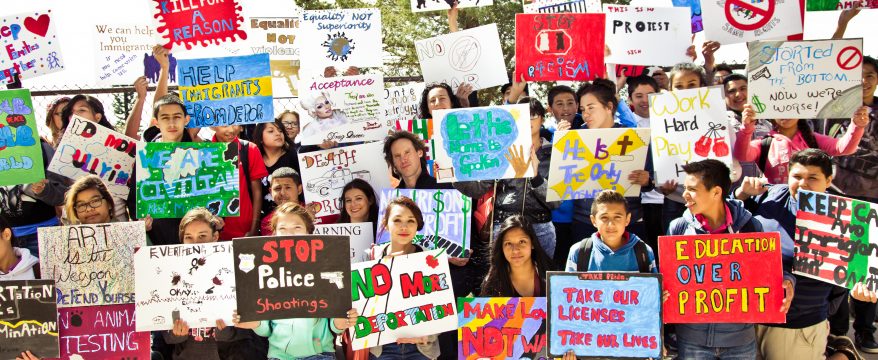Taking Action from Story
This is the fourth introductory blog post to The Power in Story, our upcoming three-part series exploring learning and transformation through story. Designed and facilitated by Chrissie Orr, co-founder of El Otro Lado and the Institute for Living Story, and Aaron Stern, Academy Founder and President, the series is for people working with story across disciplines and applications and recognize the capacity of story to enliven and heal.
In this interview, Chrissie shares how exploring individual and collective stories in a group setting can lead to action, such as policy change and reform. She also reviews how the series will engage with the experience of taking action from story.
An AUDIO RECORDING of the interview is also available.
Stay tuned for weekly blog posts with insights into The Power in Story series. Learn more by visiting the series listing or contacting co-facilitator Chrissie Orr.
I think that story too, when we are working either on a personal, individual level, or more on the collective story that comes out through picking a certain theme, for example, say we take the idea of migration and immigration, that it is such a big political story, actually at the moment in this country. If we are looking at changing people’s hearts and minds or making a transformational change around how people think of this immigration issue, sometimes to use the individual or the collective story around that can access people’s hearts rather than just their minds. I have personally seen amazing change and actions that have come out of this kind of story work.
So, how do we utilize these stories in a way to change policy? That it is not about numbers, it is not about taking away jobs, it is about people’s personal stories, and how that creates more of an empathy into the situation of immigration rather than just the numbers, the data. There are many different forms of action we could take. It might just be a personal action we take because it is a story that we have been living by, maybe since childhood, and it has really impacted us as who we are as people as we walk through the world. But perhaps there is an action we can take to transform that story for ourselves, so we maybe move through the world in a new and different way. By sharing and activating that story in a group setting can help to support that change.
There are many different forms of action that can happen out of this work. Through this series, people will be really delving into, in a deep way, into this idea that there is a power in story using various different experiences, somatic, creative, written, spoken experiences that you will be able to take away with you and activate in your own work. We will also be delving into a lot of the Academy practices, such as a practice called partnering, which is really essential to this idea of story and having the story witnessed. It is based on an active listening.
We will be looking at also the ethics and sensitivities that we need to have as cultural story workers, or just as an individual, just being sensitive to your own personal story. We will be looking at that. The ethics of: who owns the story, who tells the story, how is it retold, should it be retold. There will be many tools, that is an interesting word a tool, but many tools that participants will be able to take with them and actually utilize out in the world to either make personal change, a community change, or even -which would be wonderful, a policy change.


